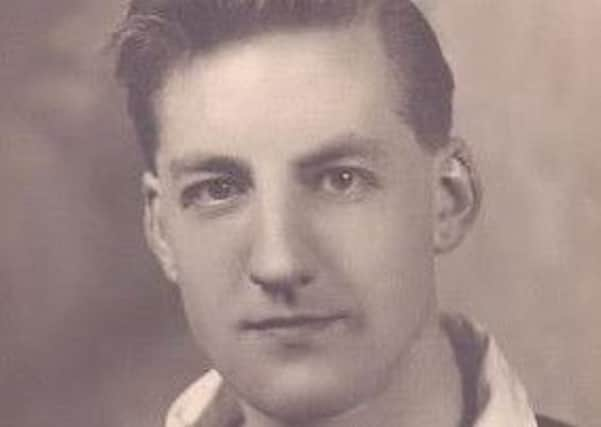Obituary: Grant Weatherstone, rugby international who was capped 16 times for Scotland


Grant Weatherstone, who has died aged 88, was a Scottish rugby international who won 16 caps between 1952 and 1959, a fast elusive Stewart’s FP winger with an eye for the try line. At a time when fewer internationals were played and selection was characterised by inconsistency, to secure that total of caps was highly creditable and indeed, but for injury, would probably have been greater.
Grant was selected initially for the British Lions tour of South Africa in 1955 but injury ruled him out. However, he was selected twice for the Barbarians’ Easter tour in Wales in 1953 and 1954, playing in four matches. He was also honoured by being selected to play in a number of prestigious fixtures for Steele Bodger’s XV, Major Stanley’s XV, and the Oakes Memorial match among others.
Advertisement
Hide AdAdvertisement
Hide AdAn outstanding 7s player, where his speed was a great asset, he won medals with Stewart’s FP at Melrose, Langholm, Gala, Hawick, Jedforest and Murrayfield. He was an important member of their team that won the unofficial Scottish club championship in 1958, which boasted several District players such as Clark Sharp, Gordon Robertson and internationals Gregor Sharp and Bill Relph.
Also a talented athlete, in 1949 he won the Scottish Schools long jump event with a noteworthy leap of 21ft 4in while a week later at Ibrox Stadium he won the corresponding event at the SAAA’s [Scottish]junior championships. Thereafter he competed successfully for a few seasons for Stewart’s FP’ s athletics team, keeping fit for rugby.
Thomas Grant Weatherstone was born in Edinburgh, the youngest of three children, to parents Thomas and Helen nee Grant. He was the younger brother of Douglas and sister Irene. His father was a hotelier with interests in the licensed trade and initially Grant was brought up in Galashiels, where he first attended primary school.
Just before the outbreak of war the family moved to South Queensferry where his father became landlord of the Hawes Inn, after which the family moved to Edinburgh, latterly living in the Davidson’s Mains area.
Grant followed his elder brother in attending Daniel Stewart’s College in Edinburgh where his sporting ability soon came to the fore, initially in the shadow of Douglas, also a talented sportsman and something of a role model.
When Grant made his debut in the 1st XV in 1946, his captain was Douglas and in 1947, when Grant won the Under-16 sports championship, the senior school championship was won by Douglas.
Grant went on to emulate him by captaining the 1st XV and twice winning the senior school sports title. He also captained the Edinburgh Schools rugby team and represented Scotland ATC in an international against their English counterparts at Twickenham, scoring what was described as “the best try of the game”.
A true sporting all rounder, he also captained the school tennis team and was a member of the cricket 1st XI.
Advertisement
Hide AdAdvertisement
Hide AdAnother school sporting highlight was attending the opening of the 1948 London Olympics at Wembley where the warmth of the crowd’s welcome and the sportsmanship on display left a deep impression.
He was soon a valued member of Stewart’s FP’s 1st XV for whom he would play with distinction over the next decade, captaining them in the mid-50s. His international debut came against England in March 1952 as a 20-year-old while his finale was also against England in March 1959. A cartilage injury in 1955 impeded his progress and prevented his going on the Lions’ tour while further injury the following season curtailed his appearances with the result that he did not reappear in Scottish colours until 1958.
Away from the international stage, winning the ‘blue riband’ of 7s tournaments at Melrose in 1956 gave him particular pleasure as he had been a defeated finalist in 1952 and would be again in 1957. Unfortunately, recurring shoulder dislocations required him to stop playing aged 29 in 1960, which was difficult as rugby was a big part of his life.
Grant studied veterinary medicine at The Royal (Dick) School of Veterinary Studies before transferring to Edinburgh University to study agriculture, graduating BSc in 1954. Thereafter he was employed by Rosebery Estates in farm management until 1958 when he joined British Oil and Cake Mills in an advisory agricultural position.
In March 1955 at St Ann’s Church, Corstorphine, he married Catherine Rodger who was employed in insurance in Edinburgh, the couple having met some years previously at Corstorphine Tennis Club. They enjoyed a long and fulfilling marriage until Catherine’s death in 2001, during which they had two children, Grant and Claire.
From 1964 they lived in the Lake District. In 1973, Grant had a career change and with his wife went into the antique and reproduction furniture retail business, opening shops in Ambleside and Bowness on Windermere until retiring in 1999. Outwith family and business he was an active member of the Round Table and its successor, the 41 Club, sailed in the Lakes and was a Sea Scout leader at Windermere, where he also played golf as a member of the local club.
He always maintained his interest in rugby and with a friend set up the Westmoreland Barbarians junior rugby club for youngsters who otherwise would not have the opportunity to play. Latterly he and some old schoolmates delighted in holding annual reunions over long weekends in various venues where golf was played and memories rekindled with the aid of an occasional refreshment.
A charming humorous gent who was as gracious off the pitch as graceful on it, he was well liked and highly regarded by all, “a wonderful guy” in son Grant’s words.
He is survived by his sister, children and grandchildren Rachael, Will, Kate and Gregor.
JACK DAVIDSON